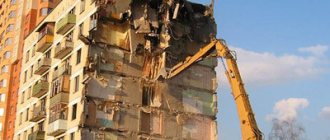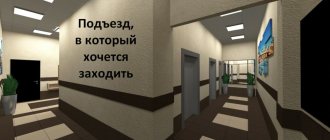Individual housing construction or SNT - which is better? This question interests citizens who are planning to acquire land plots for ownership.
The territory of the Russian Federation is large, therefore it is divided into categories and must be used only for its intended purpose. In this regard, the purchase of land must be accompanied by knowledge of the category to which it belongs.
Below we will look at the advantages and disadvantages of the categories and find out what can be built, what kind of houses, how to organize the transfer of a category from one to another and what you need to know in order not to break the law, what risks exist and how not to be refused.
Categories of land plots
The RF Land Code specifies the existing categories:
- land plots intended for agricultural needs;
- for the construction of settlements;
- special purpose areas;
- specially protected areas and objects;
- forest and water fund lands;
- areas that are in the country's reserves.
Please note: persons who violate the rules for the use of land bear not only administrative, but also criminal liability.
The legislative framework
Everything related to land ownership is regulated at the legislative level.
List of documents that can be consulted to resolve issues related to land:
- ZF-136 - it specifies the nuances associated with the transfer of land for individual housing construction;
- FZ-218 - regulates the procedure for registering real estate;
- Federal Law-172 - contains the procedure for transferring a site from one category to another;
- Housing Code of the Russian Federation - determines the conditions and procedure for recognizing an object as residential.
Differences between DNP and individual housing construction
If the DNP is not located within the boundaries of the settlements, this means that all issues related to the improvement of the dacha village are decided by the owners of the plots independently, at their own expense. This includes: water supply, lighting, roads. A country house is being built on DNP plots for seasonal residence, so registration is not provided. DNP plots are cheaper than individual housing construction, therefore the tax is much lower than for individual housing construction. Banks do not take land and DNP objects as collateral when applying for a mortgage.
At individual housing construction sites, issues related to infrastructure are resolved by municipal authorities. On such lands a permanent building is erected for year-round living, an address is assigned and registration is guaranteed. When applying for a mortgage loan, the land ownership of individual housing construction is taken by banks as collateral. But the price for individual housing construction plots is much higher than for DNP.
Having analyzed the positive and negative aspects, the conclusion arises that the DNP plots are more profitable in terms of pricing policy than individual housing construction
. Even difficulties with obtaining registration can be overcome with effort. But there is an opportunity to legally build a permanent house, with all communications. This is a profitable investment for every owner of such a plot.
What is better individual housing construction or SNT
In order to understand what is better, you need to understand for what purpose the land is being acquired. It is also necessary to understand what the abbreviations SNT and IZHS mean.
So, what does SNT mean? These are gardening non-profit organizations located on agricultural lands. Here the question arises: is it possible to build a residential building on such land? In addition to farming, dacha construction is allowed.
In this case, you must be a member of a partnership and pay membership fees. This condition will allow the construction of both residential and non-residential buildings on the site. Registration in such premises is difficult, since the land is not intended for capital construction.
Individual housing construction - individual housing construction. Allows you to build housing or purchase ready-made houses in a town or village for permanent residence. With registration without additional permission for these actions.
There are no membership fees, which is also important. There are small restrictions: only one family will be able to register, and the building can have a maximum height of no more than three floors.
What is the difference between the lands of individual housing construction, SNT, DNP: what is the difference and what to choose
We will conduct a comparative analysis of various types of land plots in order to clearly demonstrate how individual housing construction lands differ from SNT and DNP. We will also include here no less popular gardening associations.
- Low estimated value of land due to its lower fertility.
- A plot of land in the DNP can also be allocated on the lands of settlements, which simplifies administrative procedures when registering capital buildings existing on it.
- Possibility of registration at the place of residence.
What are the differences
Before purchasing land, you need to understand the difference between one or another category of land, for example, how a country house differs from a residential one.
The table shows all the facts describing how the categories differ from each other.
| Differences | individual housing construction | SNT |
| Location | plots are located on or near municipal districts | located on farmland |
| Registration | possibility of permanent registration | registration is also possible, but only after the premises are recognized as residential |
| Construction | it is possible to erect permanent structures, but not higher than three floors | construction of country houses |
| Improvement | carried out at the expense of the municipal district | at the expense of funds collected in the partnership |
If you are thinking about the question - what is the catch in having the status of SNT land, then you are most likely worried about whether you will be able to register yourself and your entire family there, build a house, and whether they will force you to demolish the built structure.
Take note: if citizens plan to live in a building seasonally, then SNT-category plots are quite suitable for this. Both dacha and cottage communities are being built on SNT lands. And if you want to build a house with further residence in it permanently, the best choice would be individual housing construction.
Difference between SNT and IZHS 2020
The legislation allows citizens to register in a house on the SNT site. The main condition for registration is that the person must live in the house on a permanent basis. In practice, difficulties often arise in meeting this requirement. This is due to the fact that country houses often lack the necessary communications, which in turn makes year-round living in the building almost impossible.
The answer to this is ambiguous. On the one hand, individual housing construction land is limited in size, and therefore placing a full-fledged cottage-type house on it may be difficult. On the other hand, if you managed to obtain a large plot of land, then you can build a detached cottage house on it. And in this case, you will have significantly fewer problems with coordination and obtaining permits when registering ownership rights than with SNT.
We recommend reading: Patent Conditions for Individual Entrepreneurs in 2020
The procedure for transferring land
What is land transfer? This is the replacement of the assigned category of land with another.
To find out how to transfer a land plot from one category to another, for example, SNT to a rural settlement, the owner needs to consult the administration of the district to which the land is attached.
If such a translation is possible, then it is necessary:
- fill out an application of the established form indicating the existing status of the land and the desired one;
- collect a package of established documents;
- bring a statement in free form from the other owners stating that they have nothing against changing the category. Be sure to have it certified by a notary.
It is worth noting: if the administration declares that the transfer of these lands is impossible, then any attempts will be unsuccessful.
Individual housing construction and gardening will be equalized, and low-tax gardening will appear for pensioners
— If you have ownership of the plot, the law does not require land surveying and registration of ownership of the country house. It is enough to fill out a declaration, attach a document of title to the land plot, receive an extract from the cadastre and go to the registration chamber. There is no need to call land surveyors. Sometimes cadastral registration authorities refuse to issue an extract from the cadastre, citing the need to carry out land surveying. But this requirement is legal only if information about the site has not been entered into the cadastre. In your case, this situation is unlikely - information about the plot in the order of inventory of previously registered land plots should have been included in the cadastre.
We recommend reading: in what case can bailiffs take away an apartment if there are three children?
QUESTION: - In 1999, a commission under the administration of the Mytishchi district provided residents of the village of Nagornoye with 2.4 hectares for vegetable gardens, for rent for an indefinite period. In April 2006, we were offered to take ownership of the plots at a standard price. But in December 2006 it was reported that registration of the plots was not possible, since these lands were intended for multi-storey development in the future. In connection with the “dacha amnesty,” do we have the opportunity to register vegetable gardens as property?
Required documents
The following documents must be attached to the above documents:
- papers confirming the right to own land;
- cadastral and technical documentation;
- extract from the Unified State Register.
Having collected and submitted all the papers to the administration, a response will be ready after a month. It is prepared and sent to the applicant in writing.
If the decision is made in favor of the owner, then an act indicating the possibility of transferring the land to another category is attached to the response. When a refusal is received, the reasons must be indicated.
Advantages and disadvantages of individual housing construction and SNT
Each site has a number of pros and cons.
Land category individual housing construction - advantages:
- the site has a legal address, which allows you to register for permanent residence;
- is located within the city and has a developed infrastructure;
- payment of utilities in accordance with established tariffs.
Minuses:
- high cost of land, much higher land tax;
- building height limitation;
- compliance with all established GOSTs during the construction of a building;
- If the land is purchased without a house, then it must be built within five years.
SNT lands - advantages:
- lower land costs have been established for gardening;
- tax is less;
- location away from cities, which indicates a cleaner environment.
Minuses:
- lack of opportunity to register;
- regular membership fees;
- lack of infrastructure.
Registration at the dacha - pros and cons
The State Duma is preparing for the second reading a bill that will allow owners of residential buildings located on SNT lands to re-register them as individual residential buildings and register in them. However, the territory of the former SNT will not receive the status of a populated area, which means that the authorities will not have any obligations to improve and create social, communal and transport infrastructure.
Representatives of public organizations representing the interests of SNT members and officials tried to understand the details of the document, as well as the possibilities of its practical application during a round table in the Moscow press.
The Constitutional Court of the Russian Federation recognized that the provisions of 66-FZ “On gardening, vegetable gardening and dacha non-profit associations of citizens” do not comply with the Constitution in the part where it excludes the possibility of registering citizens at their place of residence in residential buildings owned by them that are suitable for permanent residence . Now a bill is being prepared for the second reading in the State Duma, designed to bring the document into conformity with the Basic Law of the country.
In order to comply with the terminology already used in the legislation and eliminate uncertainty in the question of whether a citizen is registered in a residential building or residential premises, the concept of “residential building”, which is used in the current version of the law, is proposed to be replaced with the concept of “individual residential building”. The document also proposes to exclude provisions limiting the right of citizens to register at the place of residence in a residential building located on a garden or dacha plot of land, which belongs to the lands of settlements or agricultural lands.
In addition to this, it is proposed to add a rule “reinforcing the right of citizens who own residential buildings located on garden and dacha land plots as part of the lands of settlements or agricultural lands, meeting the requirements for residential premises, and recognized in the prescribed manner as suitable for permanent residence, re-register these residential buildings as individual residential buildings in the manner prescribed by law.”
The explanatory note to the document notes that its adoption will make it possible to implement the norms of the constitutional right of citizens to choose their place of residence within the Russian Federation. However, registration at the place of residence in an individual residential building will not lead to the acquisition of the status of a populated area by the corresponding territory and, therefore, impose responsibilities on the authorities for its improvement, creation and maintenance of communal and transport infrastructure.
This formulation of the issue did not arouse optimism among representatives of gardening partnerships, because in this case, citizens registered and living in their homes on the territory of the former SNT would have their rights infringed in comparison with citizens living in populated areas. But they will pay taxes and utilities on the same basis as everyone else, because if the dacha plot receives the status of being allocated for individual housing construction, land and property taxes, as well as the cost of utilities, will increase sharply.
“We received an official response from the Chairman of the State Duma Committee on Land Relations and Construction, Alexei Russkikh, who confirmed that, indeed, if the bill is adopted, the legal status of the land plot changes. This will entail an increase in land taxes. For many, an individual residential building will become a second property, and for such citizens the tax will increase exponentially. In addition, the destruction of SNT will lead to the emergence of management companies, and for an individual residential building you will have to pay not 700-800 rubles a month, as is happening now, but 5 thousand rubles, like for an apartment,” noted Lyudmila, chairman of the Gardeners Trade Union of Russia Golosova.
At the same time, according to Golosova, there are other negative consequences, in particular for those on the waiting list.
“If today a citizen lives in a social rented apartment and wants to improve their living conditions, he has the opportunity to submit documents and get on the waiting list. If a residential building is renamed into an individual residential building, a citizen who has a garden house on the territory of SNT will not be put on the waiting list. Those that have already been staged will be removed. State Duma deputy Galina Khovanskaya confirmed this, we have her official response. Thus, the authorities, apparently, also want to solve the problems with the waiting list at the same time,” concluded the chairman of the Russian Gardeners’ Trade Union.
According to her, this document is relevant only for Moscow and the region, because outside the Moscow Ring Road, summer residents have rather modest plots and buildings, and only a few will want to convert them into individual residential buildings, thereby increasing tax contributions and utility bills. And in the capital there are hardly any people who are ready to exchange their Moscow registration for permanent registration at their dacha, Golosova is sure. “The fact that the bill is popular and a huge number of old people dream of registering in garden houses is a myth,” she noted.
However, Valery Filchenkov, advisor to the head of the Department for the Development of New Territories in Moscow, did not share the summer residents’ concerns on this score. After all, transferring a residential building to individual housing construction is not an obligation at all. Summer residents have a choice. If they want to increase the cost of land and buildings, they will do so, the official is sure. “Now all that SNT members can count on is 2 kW per house, temporary water supply, lack of natural gas and central sewerage. Individual housing construction means a certain level of comfort, landscaping that meets the standards, and the opportunity to build relationships with local authorities, utilities and social services,” Filchenkov noted.
In addition, the official noted that in accordance with the Housing Code of the Russian Federation, owners of individual residential buildings have the right to create an HOA in order to manage the utilities of their houses and territory themselves, or to hire a controlled management company. Another bonus is the opportunity to participate in local government, including choosing the head and influencing the activities of local authorities. After all, now this can only be done at the place of permanent registration. “But again, whether to re-register into an individual residential building or not is a voluntary matter for each member of the SNT,” emphasized the adviser to the head of the relevant department.
During the conversation, the trade union representatives had many questions regarding the practical side of the matter. In particular, Galina Shorokhova, chairman of the Moscow branch of the Trade Union of Gardeners of Russia, asked what officials plan to do with postal addresses that SNT does not have. Will postal addresses be allocated for those who have changed the status of their land, but not for the rest of the SNT members?
“The law seems to be good and seems to give you the right, but when you want to take advantage, many problems can arise,” Shorokhova fears.
According to a representative of the relevant department, the issue of addresses is still open. “First, apparently, we will have to make a planning project in order to speed up and simplify the procedure for assigning a postal address, and for local authorities to make decisions on including this territory within the boundaries of the settlement and on assigning street names and numbers to residential buildings,” he noted.
As for the improvement and creation of infrastructure, Filchenkov said the following: “there is external infrastructure and there is infrastructure located inside the SNT. With the transfer of land to individual housing construction, the status of the territory itself does not change and, accordingly, the city does not have any obligations. This means that the members of the partnership create an HOA or choose a management company and resolve these issues together. Whether they do landscaping or not is their own decision. No one can force them."
At the same time, he added that if all members of the SNT decide to convert dacha buildings into individual residential buildings, by joint efforts it will be easier for them to put the road in order, build winter water supply, and wastewater treatment plants. “Within the partnership, citizens should do this together, and then it will be easier for local authorities to connect them to the networks of the locality,” the official noted.
However, this scenario is only possible if the document is adopted in the form in which it is presented today. On this issue, the official nevertheless agreed with representatives of the public: if a citizen can register at his place of residence in an individual residential building on the territory of SNT, he should have the right to certain benefits of civilization, including the provision of transport and utility infrastructure, kindergartens, schools, fire stations. “The bill is still being discussed, it is not an approved document, therefore, it is possible that before its adoption it may undergo certain changes,” noted a representative of the department.
“Only after the document is adopted, together with members of gardening associations, will we decide which part of the work will be taken on by the city, and which part by the residents of the new village.”
However, according to Filchenkov, it would be possible to develop possible approaches to how the provisions of the law will be applied in practice today. He suggested that representatives of the gardeners' union create a joint working group and work together to solve these problems. “There is no surgical action; we are trying to determine approaches to how to transform the territories of SNT. This will be done only in dialogue with members of gardening associations and with those public organizations that represent the majority,” the official noted.
Anna Semenets










